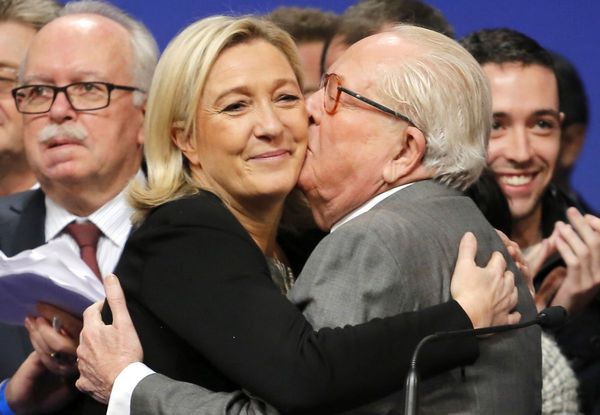
A senior Democratic senator is urging President Donald Trump to withdraw his nominee for the U.S. ambassador to Germany over controversial remarks the nominee has made as a media commentator that have been deemed racist, xenophobic, and anti-Semitic.
In a letter to White House chief of staff Mark Meadows, Sen. Bob Menendez, the top Democrat on the Senate Foreign Relations Committee, outlined what he called a “catalogue of disturbing statements” by retired U.S. Army Col. Douglas Macgregor that should disqualify him from the ambassador post.
“It would be a disservice to the nation and U.S. security interests to have Col. Macgregor represent the United States abroad. I therefore call upon the Administration to withdraw this nomination immediately,” Menendez wrote in the letter, which was obtained by Foreign Policy.
If confirmed, Macgregor, a decorated combat veteran and commentator on national security issues for Fox News and other conservative media outlets, would manage a relationship with one of the United States’ most important allies that has become strained under Trump.
While lawmakers have often objected to Trump’s ambassador nominees, several congressional aides said it is unusual for Democrats on the committee that reviews such nominations to appeal directly to Trump’s inner circle. The letter is likely to ramp up public pressure on the administration, though the White House in a statement to Foreign Policy praised Macgregor and his qualifications for the post, including his expertise in German history and language and past postings in the country during his time in the Army.
Earlier this month, CNN’s KFile team outlined statements Macgregor made in dozens of interviews and written pieces in which he denigrated immigrants and refugees. Macgregor called refugees fleeing war in the Middle East to Germany “unwanted Muslim invaders” and in 2016 wrote a blog post urging the shooting of migrants crossing illegally at the U.S.-Mexico border to curb immigration.
“Once it becomes clear that Central Americans AND Mexicans [and other illegals], are NOT going to survive an attempt to enter the US, and will be LUCKY if they are turned back rather than killed in the attempt to violate US sovereign borders, the flow will diminish substantially,” he wrote. (Brackets are original to his post.)
Macgregor’s nomination drew fire from Jewish groups, including the Anti-Defamation League (ADL) and American Jewish Committee (AJC), for “incendiary comments over the years about the German government, Germany’s confrontation with its Nazi past.”
“There’s sort of a sick mentality that says that generations after generations must atone sins of what happened in 13 years of German history and ignore the other 1,500 years of Germany,” Macgregor said in a 2018 interview on the Conservative Commandos radio show.
In his letter, Menendez wrote: “I share the concerns of AJC and the ADL and find it abhorrent that this Administration would associate itself with these views by nominating such an individual.”
“Colonel Macgregor is enormously qualified to serve as the United States Ambassador to Germany,” White House spokesman Judd Deere said in response. “He is an expert in German history and language, lived in Germany when he was a student and a cadet, and served in West Germany during the Cold War. While the Swamp may feel threatened by President Trump’s nominee, who believes strongly in putting America first, the White House wants to see this critical diplomatic post filled without delay.”
Like the president, Macgregor is skeptical of the value of the NATO alliance. He referred to the alliance in a 2019 op-ed as “a zombie.”
Macgregor served in NATO during the 1999 campaign in Kosovo. A White House press statement announcing his nomination on July 27 described him as “the recipient of numerous awards from his military service, including the bronze star with ‘V’ device for valor for his leadership under fire.”
In outlining his criticisms of Macgregor, Menendez also cited an interview the former Army officer gave the Russian state-backed media outlet RT in 2014, in which he said parts of eastern Ukraine should be allowed to join Russia in the wake of the Kremlin’s illegal annexation of Crimea and invasion of eastern Ukraine—a view that contradicts official U.S. and European Union policy.
“Do you, if you are living in Eastern Ukraine, want to join Russia, which appears to be the popular sentiment? If so, they should be allowed to join Russia. And at the same time, what emerges from this process up in the West and in the North, which is truly Ukrainian in terms of culture, language, history, religion, so forth, they should be allowed to have a sovereign independent Ukrainian state,” Macgregor said.
In his letter, Menendez wrote: “Despite President Trump’s affinity for President Putin, these views do not reflect longstanding U.S. policy on Ukraine and would be rejected by a strong majority of United States Senators.”
Update, Aug. 31, 2020: This article was updated to include comment from a White House spokesman.







